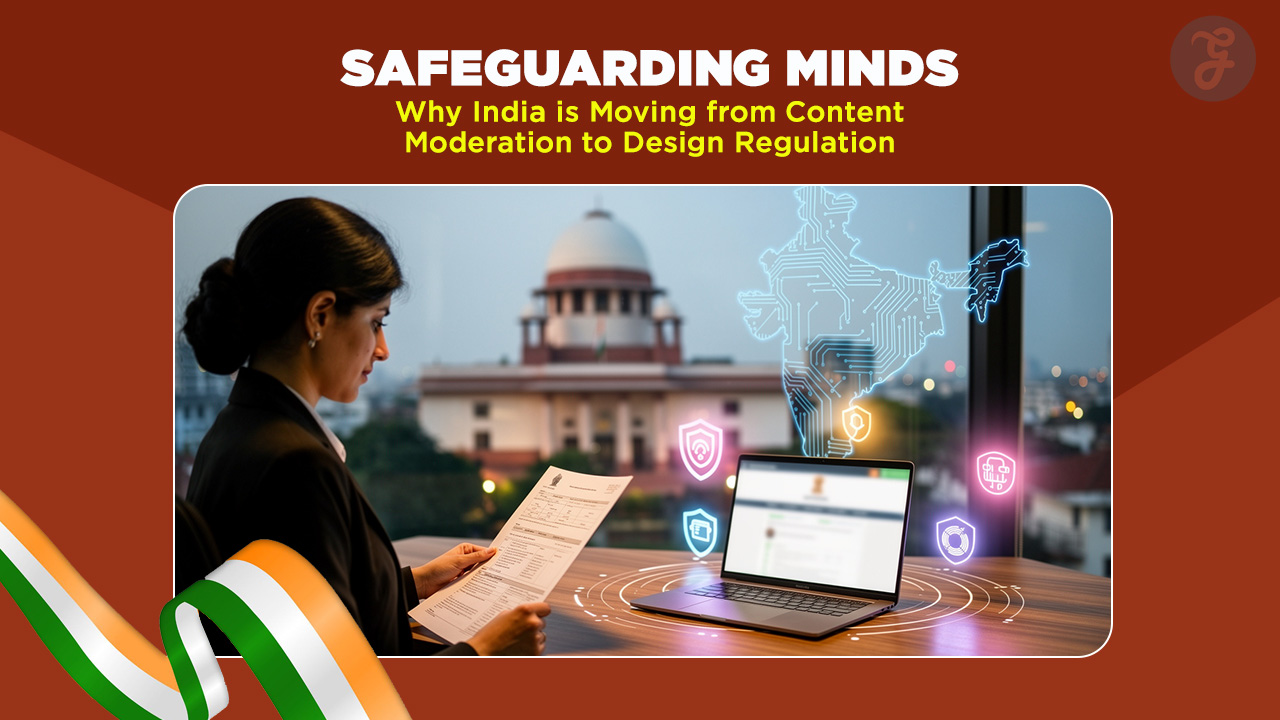Ireland has become an increasingly attractive destination for foreign property buyers, with its strong economy, beautiful landscapes, and welcoming culture. Whether you’re looking for a vacation home, an investment property, or planning to make Ireland your permanent residence, understanding the legal landscape is crucial for a smooth and successful property transaction.
This comprehensive guide will take you through the 10 legal requirements for buying property in Ireland as a foreigner, offering actionable tips, real-life examples, and a resource-rich breakdown of what you need to know.
By understanding these requirements, you will be equipped to navigate Ireland’s property market confidently, avoid potential pitfalls, and ensure your investment is legally sound and financially beneficial.
Why Foreigners Should Consider Buying Property in Ireland
The Irish property market has seen significant growth in recent years, largely driven by the country’s resilient economy, increasing foreign investment, and a steady demand for both residential and commercial properties.
Despite market fluctuations, Ireland remains an attractive destination due to its political stability, EU membership, and growing demand from international investors.
Key Market Insights and Real-Time Data
| City/Region | Average Property Price (Residential) | Market Growth Rate (2023) | Rent Demand |
| Dublin | €450,000 | 5.5% | High |
| Cork | €280,000 | 4.5% | Moderate |
| Galway | €260,000 | 4.2% | High |
The market in Dublin continues to be the most competitive, driven by strong demand from both local and international buyers.
However, areas like Cork and Galway are also gaining traction, especially for investors looking for relatively lower-priced properties.
Why It Makes Sense for Foreign Investors:
- EU Membership: As a member of the EU, Ireland provides access to the European market, making it an attractive location for both residential buyers and international businesses looking to establish a presence.
- Stable Economy: Ireland’s economy has consistently shown resilience, even during global economic downturns, making it a safe haven for long-term investments.
Benefits of Investing in Irish Property
- Competitive Tax System: Ireland offers attractive tax benefits, such as a low corporate tax rate, that can benefit foreign investors looking to manage rental properties or business operations.
- High Rental Yields: With growing demand in major cities, property owners are seeing higher rental returns, especially in Dublin, where rental demand consistently exceeds supply.
- Cultural and Economic Appeal: Ireland offers a unique combination of natural beauty, rich history, and a thriving tech and business ecosystem. Cities like Dublin have become global hubs for major companies, further bolstering the demand for housing.
- Political Stability: Ireland’s stable government and business-friendly regulations create a secure environment for foreign investments.
Real-Life Example:
Consider the case of a British investor who purchased an apartment in Dublin in 2017 for €320,000. Over the past five years, the property has appreciated by over 35%, with the current market value now exceeding €430,000. This demonstrates the strong appreciation potential in key areas like Dublin.
Understanding the Legal Framework for Foreign Property Buyers in Ireland
Yes, foreigners can purchase property in Ireland, with relatively few restrictions. The process is largely the same as it is for Irish nationals, making it an attractive destination for property buyers from outside the EU. However, there are certain conditions that non-EU buyers need to consider.
Key Considerations for Non-EU Buyers:
- Agricultural Land: Non-EU nationals need government approval to purchase agricultural land. The Irish government may impose restrictions on how much land an individual can own, especially if they are not involved in farming.
- Immigration Status: Some buyers may need to meet residency requirements, especially if they plan to reside in Ireland permanently.
| Property Type | Restrictions for Foreign Buyers |
| Residential Property | No restrictions for EU or non-EU citizens |
| Commercial Property | Available, but zoning laws may apply |
| Agricultural Land | Restrictions for non-EU nationals, permission needed |
Types of Properties Foreigners Can Purchase
Foreign buyers can purchase a variety of property types in Ireland, with no significant legal restrictions on residential or commercial real estate.
However, agricultural land presents unique challenges for non-EU nationals.
Types of Properties Available:
- Residential: Houses, apartments, and vacation homes are available across the country.
- Commercial: Offices, retail spaces, and industrial properties are open for foreign investment.
- Agricultural: Requires government approval for non-EU nationals.
How Irish Law Protects Foreign Property Owners
Irish property law protects foreign owners by providing clear documentation through the Irish Land Registry. Once a property is purchased, the title is registered, ensuring your ownership rights are legally secured.
The legal system in Ireland is transparent, minimizing risks of fraud or disputes.
10 Legal Requirements for Buying Property in Ireland as a Foreigner
1. Research Local Property Market Trends
Before diving into the property market, understanding market trends is essential to making an informed decision.
Conducting thorough research will help you identify the best locations and understand current pricing dynamics.
Actionable Tips for Effective Market Research:
- Use Property Websites: Platforms like Daft.ie and MyHome.ie offer up-to-date listings, giving you an overview of current property prices.
- Consult Local Real Estate Agents: Agents have detailed knowledge of the local market and can provide valuable insights into the demand, price fluctuations, and potential investment areas.
Key Data for Market Research:
| City | Average Price (2023) | Yearly Growth Rate | Rent Yield (Gross) |
| Dublin | €450,000 | 5.5% | 4.8% |
| Cork | €280,000 | 4.5% | 5.2% |
| Galway | €260,000 | 4.2% | 5.0% |
2. Hire a Qualified Solicitor
A solicitor is one of the most important professionals you will work with when purchasing property in Ireland. Their role is to ensure that every aspect of your transaction complies with Irish law, and that your interests are legally protected throughout the process.
Without a solicitor, you risk potential legal issues that could arise, such as disputes over property ownership or misinterpretation of contractual terms.
| Service Provided by Solicitor | Description |
| Contract Review | Solicitors carefully examine the terms of the property purchase to ensure fairness and to identify any hidden clauses or unfavorable terms. |
| Due Diligence | They conduct checks to ensure the property is free from any legal issues, such as unpaid taxes, disputes, or potential ownership conflicts, which could affect your investment. |
Actionable Tip:
Choose a solicitor with experience in handling international property transactions. This will ensure they are familiar with the specific concerns of foreign buyers.
3. Apply for a Personal Public Service Number (PPSN)
To complete a property transaction in Ireland, you need a Personal Public Service Number (PPSN). This unique identifier is used for tax purposes and is required when registering the property.
A PPSN is required to complete property transactions in Ireland. This unique identifier is necessary for tax purposes, including registering the property.
How to Apply:
- Where to Apply: Apply at the Department of Social Protection or at a local office in Ireland.
- Documents Required: You will need your passport, proof of residence in Ireland, and proof of immigration status.
| Required Document | Examples |
| Proof of Identity | Passport, National ID |
| Proof of Residence | Utility bills, Lease agreement |
| Immigration Status | Visa, Residence permit |
4. Open a Bank Account in Ireland
A local bank account is necessary for completing property transactions. It will be used for transferring funds and handling all payments related to the property.
Having a local bank account is essential for completing property transactions. It allows you to transfer funds, handle payments, and cover ongoing property-related expenses.
Actionable Tips:
- Choose an International Bank: Banks like Bank of Ireland or AIB offer services for foreign nationals.
- Required Documents: Provide your passport, proof of address, and income verification when applying.
| Bank Service | Estimated Fees | Benefits |
| Account Setup | €5 – €10 | Local and international transfers |
| Maintenance Fee | €5 – €15/month | Debit card, online banking access |
5. Understand the Stamp Duty Taxes
Stamp duty is a tax levied on property transactions in Ireland, and it is one of the most important costs to consider when buying property. This tax is imposed by the Irish government on the transfer of property ownership and is calculated as a percentage of the purchase price or the market value of the property, whichever is higher. The stamp duty rate you’ll pay depends on the type of property being purchased, so it’s essential to understand these rates and how they apply to your situation.
Stamp Duty Rates
The stamp duty rate in Ireland varies depending on the nature of the property transaction—whether the property is residential or non-residential.
Here’s a breakdown of the current rates:
| Property Type | Stamp Duty Rate |
| Residential Property | 1% on the first €1 million, 2% on the balance |
| Non-Residential Property | 7.5% |
| Agricultural Land | 1% for EU citizens, 3% for non-EU citizens (if applicable) |
Knowing the stamp duty rates will help you budget accordingly for your property transaction.
6. Consider the Property Valuation Process
A property valuation is a critical part of the property purchasing process. It helps to assess whether the price you’re paying for a property aligns with its true market value. Having an independent valuation gives you peace of mind, allowing you to avoid overpaying for an asset.
Additionally, a valuation can highlight any potential issues with the property—whether structural, legal, or financial—that could affect your investment and future returns.
Why It’s Crucial:
- Accurate Price Assessment: Ensures the property price aligns with the market value.
- Avoid Hidden Issues: Identifies structural or legal issues that could affect your purchase.
| Valuation Service | Estimated Cost | Property Type |
| Residential | €200 – €500 | Houses, Apartments |
| Commercial | €500 – €1,500 | Offices, Retail Space |
7. Secure Financing (If Applicable)
If you’re financing your property purchase in Ireland through a mortgage, securing the right financing is one of the most important steps in the buying process. For foreign buyers, financing can be more challenging compared to local buyers due to stricter eligibility criteria and higher down payment requirements.
However, with careful planning and a clear understanding of the mortgage options available, you can successfully secure the necessary funds to complete your purchase.
Mortgage Options:
- Buy-to-Let Mortgages: Available if you plan to rent out the property.
- Non-Resident Mortgages: These typically require a 20%-30% down payment.
| Lender Type | Loan-to-Value Ratio | Interest Rate Range |
| Irish Banks | 70% – 80% | 3.5% – 4.5% |
| International Lenders | 60% – 75% | 4.0% – 5.5% |
8. Register the Property with the Land Registry
After successfully completing your property purchase in Ireland, registering your property with the Irish Land Registry is a crucial step in the legal process. The Land Registry ensures that the property title is officially recognized and provides legal protection for your ownership rights.
The registration process provides certainty about ownership, which is vital in the event of any future legal disputes.
Documents Needed for Registration:
| Document | Description |
| Proof of Identity | Passport or National ID |
| Proof of Payment | Bank receipts or proof of transaction |
| PPSN | Personal Public Service Number (for tax) |
| Proof of Residence | Utility bills, lease agreement, or correspondence |
| Title Deeds | Original or copy of the title deed or sale agreement |
| Sale Contract | Signed contract detailing transaction terms |
| Purchase Price Confirmation | Proof of purchase price, usually in the sale contract |
9. Understand the Role of the Notary Public
A Notary Public plays an important role in the legal system, particularly when dealing with documents that need to be recognized in multiple jurisdictions, such as when conducting business from abroad.
While a notary is not always necessary for every property transaction in Ireland, there are situations where their services are essential to ensure that documents are legally valid and recognized both in Ireland and internationally.
| Situation | Documents Involved | Role of Notary |
| Non-Resident Buying Property | Power of Attorney, Sale Agreement | Certifies documents for use in Ireland from abroad. |
| Wills and Inheritance | Last Will, Affidavit of Heirship | Authenticates wills and inheritance documents. |
| Cross-Border Property Transactions | Property Deed, Sale Contract | Ensures documents are valid internationally. |
| Affidavits for Property Disputes | Affidavit of Ownership, Boundary Disputes | Witnesses and certifies affidavits for legal use. |
10. Pay Attention to Property Taxes and Maintenance Fees
Owning property in Ireland means you’ll have ongoing obligations, including property taxes and maintenance fees. These costs are essential to consider when budgeting for your property, as they can vary depending on the type of property, its location, and other factors.
Being prepared for these costs will help you avoid any surprises and ensure that you can manage your financial commitments effectively.
| Tax Type | Amount Due | Additional Costs |
| Local Property Tax | Based on property value | Annual, varies by location |
| Maintenance Fees | €500 – €3,000/year | For apartment complexes and shared properties |
Takeaways
In conclusion, buying property in Ireland as a foreigner offers considerable advantages, including a stable market, attractive returns, and legal protections.
By understanding the 10 legal requirements for buying property in Ireland as a foreigner, you can avoid common pitfalls and ensure your investment is both legal and financially sound.
With careful planning, expert legal advice, and thorough research, buying property in Ireland can be an immensely rewarding investment.








































